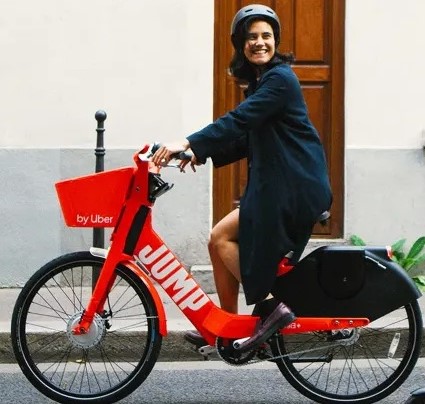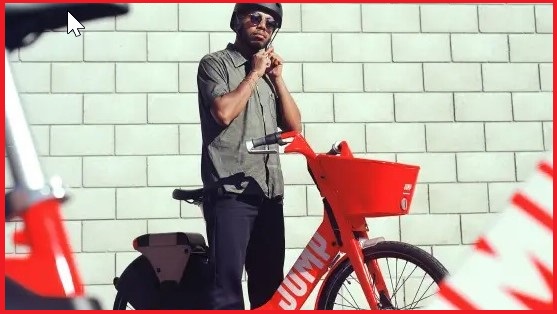Share bikes will soon return to the streets of Melbourne thanks to Uber, after a series of failed schemes saw bikes end up in the Yarra River.
Uber will be launching Jump, its electric bike-sharing service, in Melbourne next month as part of a one-year trial which will see 400 bikes rolled out in the inner city.
Through Jump, which is currently operating in 30 countries around the world, users can go on the Uber app to book a bike and pay for it in the same way as the ridesharing service.
The bikes will be available in the City of Yarra, City of Port Phillip and City of Melbourne after Memorandums of Understanding were signed.
Use of the bikes will be restricted to these areas, with users to be fined if they go beyond the boundaries.
“Users will get in-app instructions about how to safely use and park the e-bikes,” Jump general manager Henry Greenacre said.
“The e-bikes also have built-in cable locks, which means they can be safely secured to bike infrastructure.”
Jump operations teams regularly swap the batteries to ensure they are charged.
In late 2018, Uber announced new swappable lithium ion batteries, allowing for the bikes to remain on the streets and have their batteries switched in just minutes.
The electric bike-sharing service is part of Uber’s efforts to expand beyond just cars.
“The launch of Jump e-bikes in Melbourne is a key part of our blueprint to bring together multiple modes of transportation within the Uber app – so all Melburnians have more options when deciding how to get from A to B without the use of a car,” Greenacre said.
“Jump is a major part of this vision as we set a new standard for e-bikes whether it’s the motor, the GPS traceability, the locking system, the battery system, the user interface – all custom engineered and designed.
“Recent advances in batteries and cellular devices have made these shared e-bike schemes a reality.”
Share bike schemes have had a troubled history in Melbourne.
Two years ago, oBike left the city after its bikes were regularly damaged and left everywhere from the Yarra River to the tops of trees.
The Victorian government’s own bike sharing scheme was also abandoned last year due to low usage.
Jump has a number of initiatives in place with an aim to prevent similar incidents taking place.

Each bike has GPS tracking which will alert a user if they are trying to leave the bike in a dangerous place or non-parking zone.
If the warning is ignored, the user will be fined up to $15.
Thanks to a “true-locking feature” with an integrated U-bar, the Jump bikes also have to be locked to existing bike racks, rather than just being left anywhere like previous schemes.
Users could also face a ban from other Uber apps, such as ridesharing and food delivery, if they damage a Jump bike.
Jump has also pointed out that its bikes will be difficult to throw into rivers due to them weighing 35kg.
City of Melbourne Lord Mayor Sally Capp said she hopes Jump will avoid the controversies seen previously in the city.
“Share bike schemes are widely used around the world without the antisocial behaviour experienced previously in Melbourne,” Capp said.
“Importantly, this agreement doesn’t stop at council boundaries, which will make it easier and more convenient for locals and visitors to explore inner Melbourne on an e-bike.”
Uber purchased Jump in 2018 for a reported $US100 million, at a time when it was only operating in San Francisco and Washington DC.
The company said Melbourne was selected for the Australian trial due to it having the highest per capita number of bike riders and bike lanes in the country.
The Jump bikes operate nearly silently and can reach speeds of over 30km an hour, thanks to their electric motor.










